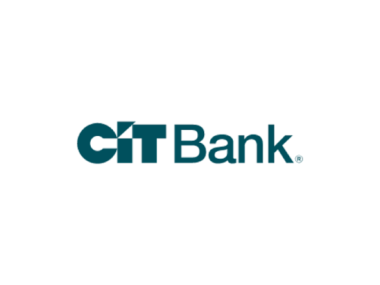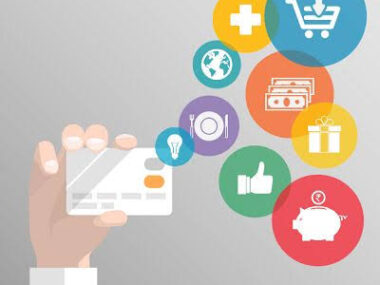What Are Mobile Payment Solutions?
Mobile payment solutions allow you to pay for goods and services using your smartphone instead of cash or cards. These digital wallets are fast, convenient, and secure.
The Major Players of Mobile Payment Solutions
The two biggest mobile payment services are Apple Pay and Google Pay. Apple Pay works with iPhones and Apple Watches, while Google Pay is for Android phones. Both let you pay in stores by holding your device up to a payment terminal.
You can also use these services for in-app purchases or online shopping.
Your payment info is stored securely on your device using encryption and tokenization so retailers never actually see your card number.
How Do I Set It Up?
Adding cards to your mobile wallet is simple.
- Open the Wallet app on your iPhone or the Google Pay app on Android.
- Tap “Add credit or debit card”.
- Enter your card info or snap a photo of your card.
- Your card issuer verifies the details.
- Start using your digital wallet.
You may need to enable NFC (near field communication) and authentication like Face ID on your phone for mobile payments to work in stores. But once set up, paying with your phone is a breeze.
The Perks of Mobile Payments
- Speed and convenience. No more fishing for your wallet at the checkout counter.
- Added security. Your actual card number isn’t shared with merchants.
- Track your spending. Mobile wallets provide purchase history and spending summaries in one place.
- Rewards and offers. You can often get perks, coupons and cash back when using mobile payments.
- The future is mobile. Mobile payments are where the world is headed. Using a mobile wallet now means you’re already plugged into the latest technology.
Mobile payment solutions make everyday transactions faster, simpler and more secure. Why not give Apple Pay, Google Pay or another mobile wallet a try? The future of payments is in your pocket.
READ ALSO: Mortgage Refinancing Made Simple: Your Guide to a Lower Rate
Top Mobile Payment Apps Like Venmo and PayPal
Here are some of the top options to consider:
1. Venmo
Venmo is one of the most popular mobile payment apps, especially among younger generations. It’s free to sign up and connects directly to your bank account or credit/debit cards.
Transactions are simple to make – just enter the recipient’s username or phone number, the amount, and an optional note. Money is deducted from your selected payment method and deposited into the other person’s Venmo balance within 1-2 days.
2. PayPal
If you do a lot of shopping online, PayPal is a trusted way to send and receive digital payments.
Once you connect your bank account or cards, you can pay for goods and services on websites that accept PayPal with just an email address and password – no sensitive financial information is shared.
PayPal also offers person-to-person payments through their mobile app, similar to Venmo.
3. Zelle
Zelle is a mobile payment network backed by major U.S. banks like Bank of America, Chase, and Wells Fargo. If your bank participates in the Zelle network, you can send real-time person-to-person payments directly through your bank’s mobile banking app.
READ ALSO: How to Login and Pay Your AT&T Bill Online
Benefits of Using Mobile Payments
Using mobile payments offers several benefits that make life more convenient.
1. Save Time
Mobile payments save you time by eliminating the need to pull out your wallet, cash, cards and wait in line to pay. Just tap your phone or scan a QR code and you’re done. This streamlined process is ideal when you’re in a hurry or there’s a long queue.
2. Increased Security
Mobile payments are actually more secure than traditional methods. Your financial details are encrypted and protected by multiple layers of security like biometrics (fingerprint or face ID), PINs, and one-time passwords.
3. Budgeting Made Easy
Many mobile payment services allow you to review purchases, set spending limits, and monitor your budget in real time using their app or website.
4. Discounts and Rewards
A number of popular mobile payment services offer cash back, discounts, coupons and loyalty rewards when you make purchases from participating retailers. The more you use the service, the more you can earn. Rewards are automatically redeemed and applied to your account so you don’t have to keep track of any points or redemption process.
The Future of Mobile Payments
Here are some of what mobile payment holds for the future:
1. Contactless Payments
Contactless payment methods like Apple Pay, Google Pay, and Samsung Pay allow you to pay with just a tap of your mobile device.
These payment platforms store your credit and debit card information so you can quickly tap to pay at contactless terminals.
2. Peer-to-Peer Payments
Services like PayPal, Venmo, and Zelle make it easy to send money directly to friends and family. Just enter the recipient’s mobile number or username and the amount you want to send. The funds are instantly transferred between your accounts.
Peer-to-peer payment platforms are useful for splitting bills, paying rent to your roommates, or just sending some cash to your kids in college.
READ ALSO: The Best Cryptocurrency Exchange Platforms for Buying and Selling Crypto
Convenient And Contactless Ways to Pay For Goods And Services
Mobile payment solutions offer convenient and contactless ways to pay for goods and services.
With just the tap of your phone or smartwatch, you can pay for your morning coffee, split bills with friends, or donate to charities.
1. Digital wallets
Digital wallets like Apple Pay, Google Pay, and Samsung Pay allow you to store your credit and debit card information on your mobile device. When paying in stores, simply unlock your phone, tap it on the payment terminal and your payment is processed.
2. Peer-to-peer payments
Need to pay your friend for concert tickets or split the lunch bill? Peer-to-peer payment apps like Venmo, PayPal, and Cash App make it a breeze. Link your bank account or card, then you can easily send and request money to and from friends.
3. Donation apps
If there’s a charity or organization you regularly support, see if they have their own mobile payment or donation app. Apps like Donorbox, Classy, and Kindful allow nonprofits to accept one-time and recurring donations via mobile devices.
Conclusion
With so many convenient mobile payment options, there’s no need to carry wads of cash or limit yourself to in-person payments anymore.




